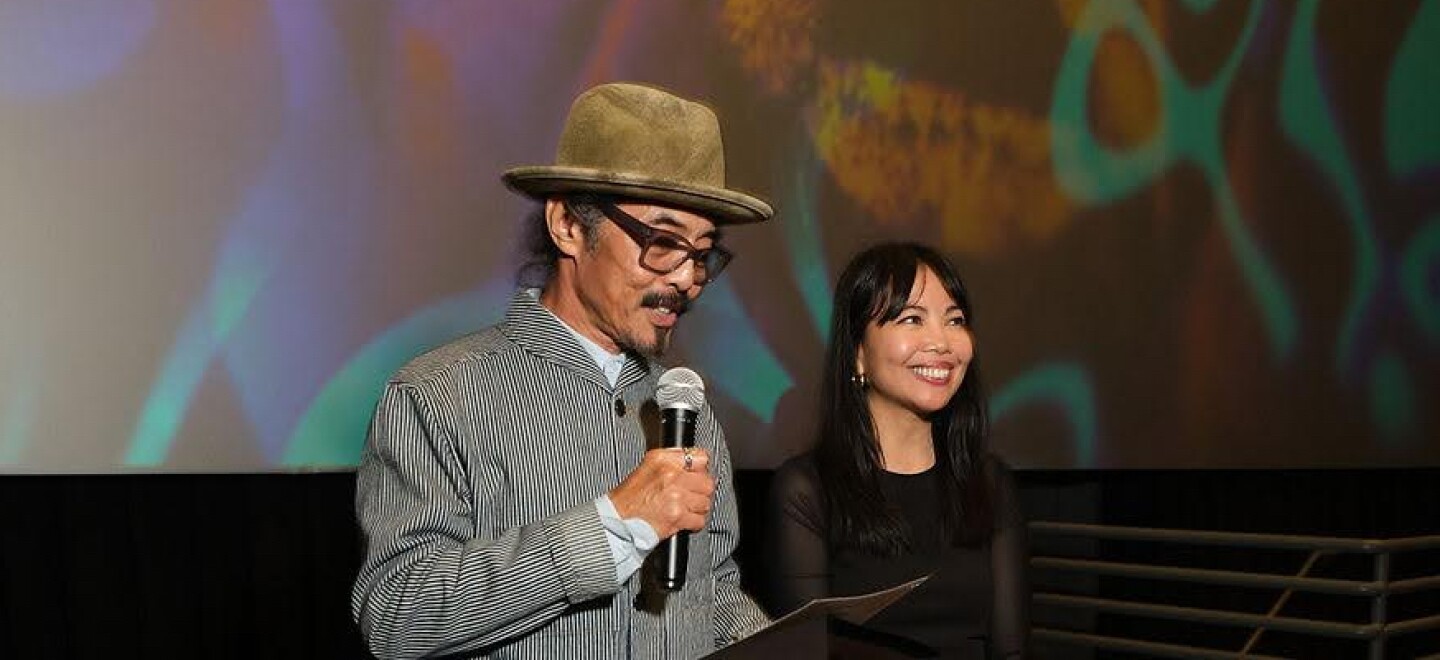Benito Bautista and Emma Francisco wanted to feed San Diego — both literally and figuratively. From the moment they conceived of creating a Filipino film festival they knew they wanted to nourish both the body and the soul because film and food are intimately intertwined.
“Food is very important for us because we share stories when we eat,” Bautista explained. “So our cultural representation, especially in cinema, actually started when we were at home, being curious about the food and everything. So for us, food is a cultural representation, and so it’s just natural to move on to stories and creating art. But everything starts with being together in a family dinner or lunch or whatever.”
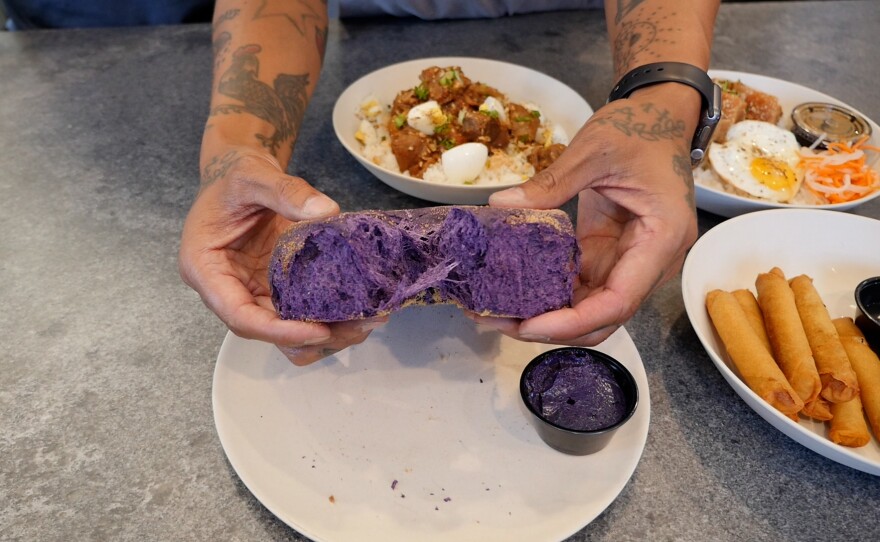
Which is precisely why I decided to interview Bautista over a Filipino meal at the restaurant White Rice Bodega, where each amazing dish seemed to contain a personal story or reveal a historical fact about cultural exchanges between the Philippines and its colonizers or trade partners (like the Philippine influence on tequila and Mezcal).
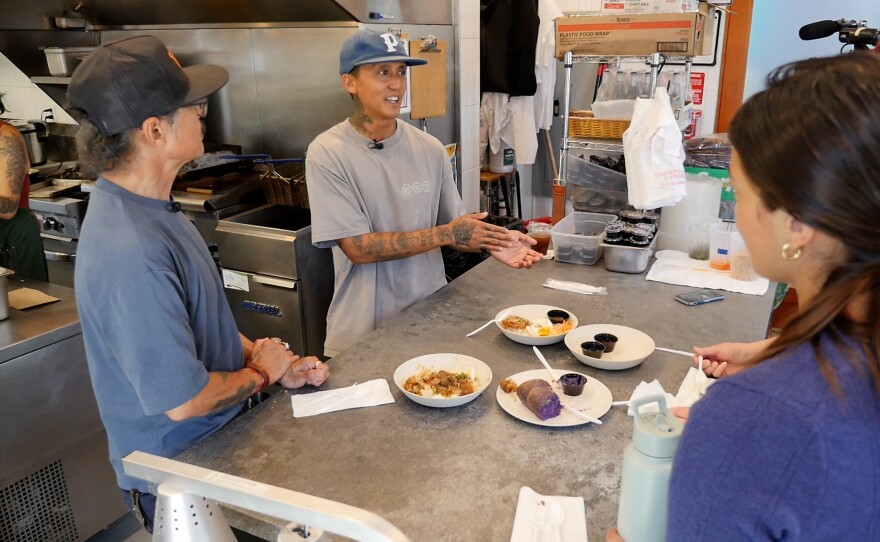
The restaurant, run by chef Phillip Esteban, has been partnering with Bautista and his wife Emma Francisco since their first film and food event was set up to test the appetite of audiences in San Diego. And people were hungry for Filipino content. So Bautista and Francisco collaborated with the San Diego Asian Film Festival before setting up their own nonprofit organization, San Diego Filipino Cinema, and then launching the San Diego Filipino Film Festival (SDFFF) in October of 2021 for Filipino American History Month.
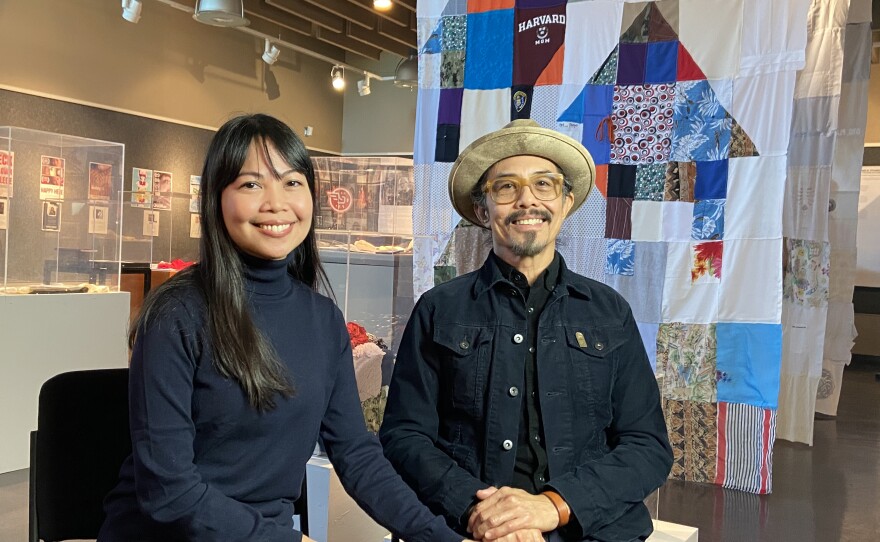
“We started with just one film with food to see if the community will react, and they reacted in a positive way,” Bautista recalled.
Details: San Diego Filipino Film Festival runs Oct. 1 through 6 at AMC Plaza Bonita, 3050 Plaza Bonita Rd, National City. Magic Hour kick off event is Sept. 13 at Centro Cultural de la Raza in Balboa Park. $12 (starting price for individual tickets) - $330 (full festival pass).
That should not be a surprise because Filipinos are the largest Asian American group in the San Diego region.
“The history of the Filipinos here in San Diego came from two industries: the military and healthcare,” Bautista explained.
The festival has paid homage to those earlier generations through documentaries and narrative films about Filipino nurses and soldiers.
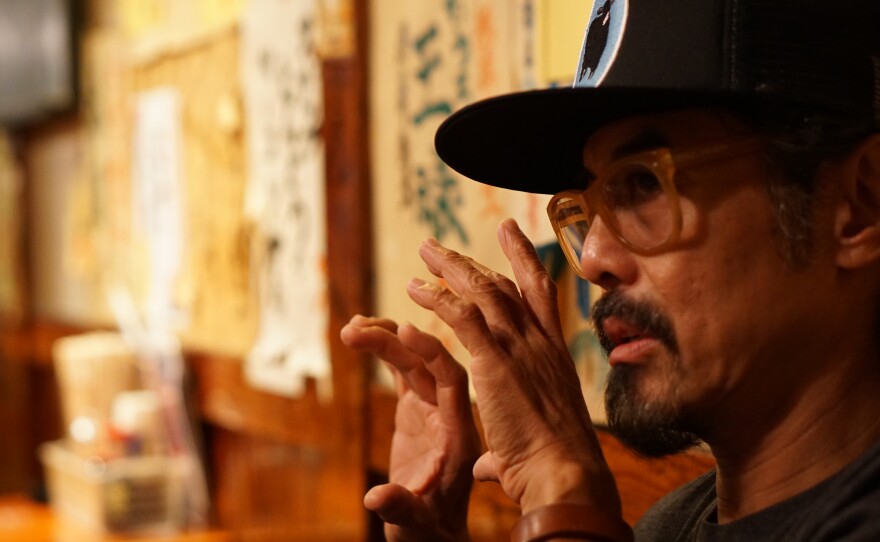
But Bautista noted he is of “the rebel generation. I deviated from healthcare and the military, and I moved into arts and cinema.”
Esteban is also of that “rebel generation.”
Of his parents’ generation he said, “They came here for a dream to offer a different life, and they want you to be secure. But the best way they could articulate it, is, ‘You need to make good money,' which means join the military, become a nurse, doctor, or engineer. And there's nothing wrong with that. But you see a lot more Filipinos, especially this second generation and third generation, more in the creative spaces.”
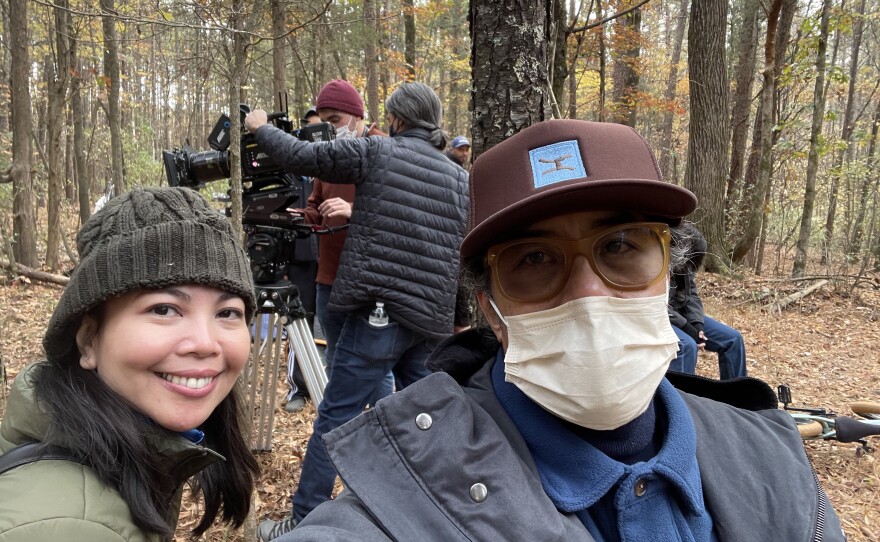
For Bautista and Francisco, being in those creative spaces and making films opened their eyes to the importance of sharing stories and creating dialogue.
“We believe that as Filipino artists, as storytellers, we have so much to give because the Philippines alone create a thousand films per year. So in the United States, the younger generations, the more they see us as storytellers, the more they want to become storytellers as well,” Bautista said. “So we decided to create the San Diego Filipino Film Festival in 2021, and it started growing and growing. And last year, we became the largest Filipino film festival in the U.S. and North America.”
Francisco, who leads the programming team, could not join the meal for the interview because she was finalizing the festival line up. She was missed, but that left an extra ube pandesal and lumpia Shanghai to fight over. Francisco told me at the inaugural event, “Benito and I have dreamt about this for a long time since we were in the Philippines, filming our films and watching the audience, how films made such an impact to them.”
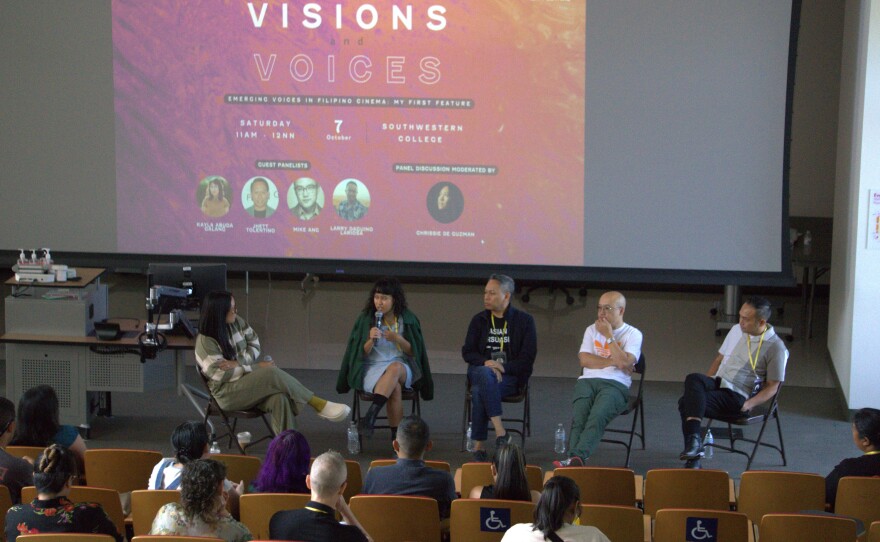
The festival provides an opportunity to not just showcase Filipino voices but also to support emerging filmmakers.
“And so that's really what we're excited about, hopefully to inspire young filmmakers to share their own stories and hopefully give them the tools that they need in order to be a sustainable filmmaker,” Francisco added.
To further that mission, this year SDFFF will launch the first ever San Diego Philippine Film Trade Fair with the support of the Philippine Department of Trade and Industry.
“It's like Comic-Con of Filipino creatives in film,” Bautista said.
The addition of a full day of panels and vendors was a massive undertaking on top of the existing challenge of putting on a film festival. So what possessed them to assume this grand undertaking?
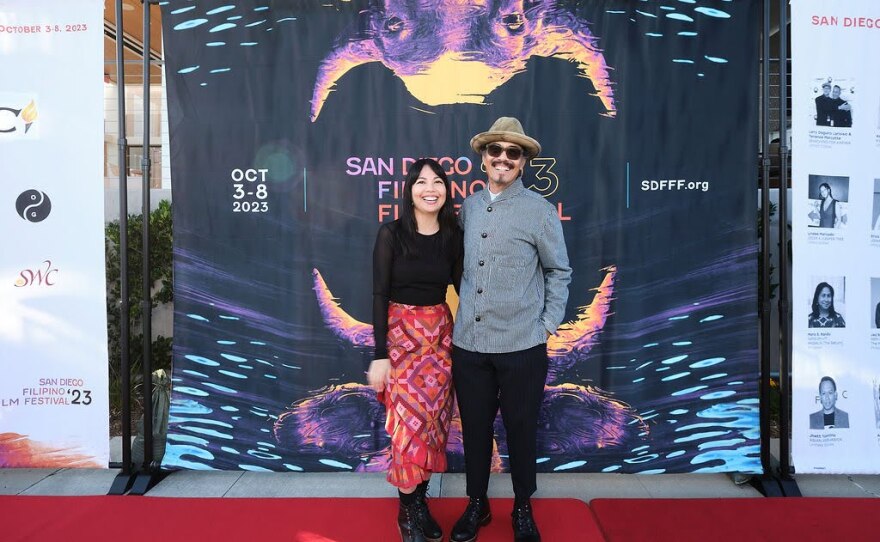
“I think it's a combination of craziness, and our love for our community, our global community of artists,” Bautista noted. “Even our first and second generation of Filipinos, they appreciate what we do now. They are inspired and proud. And the future generations of Filipino-Americans, they are so inspired and gung-ho to see other creatives that look like us. And so that's the reason why we're doing it. And we're trying to grow our visibility in our cultural representation through cinema, and now through business and economics and art.”
The Film Trade Fair will be an expo of artists, content providers, content licensing, distribution, animators, filmmakers, and service providers in the film industry gathering on Oct. 5. Attendees can check out vendor booths, attend panels or even use breakout rooms to conduct business.
“We have film producing incentives and logistic requirements in the Philippines so if you're a filmmaker here in the U.S., and you feel like, I want to make a film in the Philippines, then this is your opportunity to sit down and figure it out,” Bautista added.
Bautista and Francisco want people to network, to find investors, and to realize there is a ready-made Filipino market out there eager to consume.
“We realize how transformative cinema can be and we want to somehow pay it forward, what we've experienced as filmmakers, and engage the community and show them that they have a platform to showcase their films,” Bautista stated.
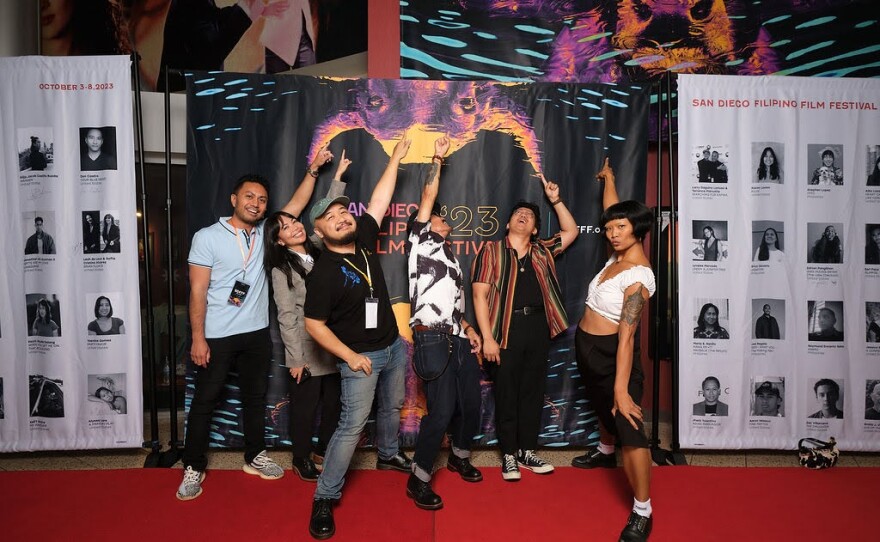
When he started the festival, he said there were two things he wanted to address. First, as a filmmaker himself, he wanted the best theater he could find. But perhaps more importantly, he wanted to find a cinema that was representational of his community.
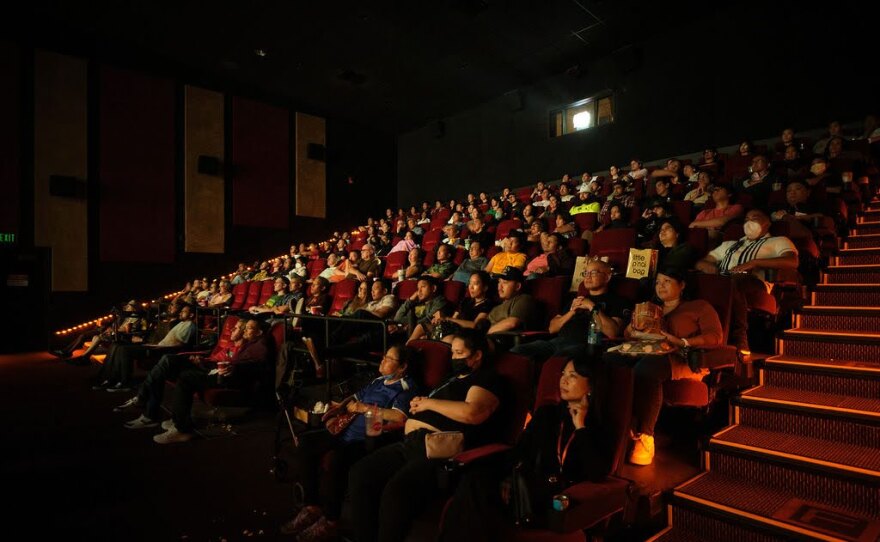
“Let's say I show films in La Jolla. Is that representational of our community? Our Philippine community might go, but it might not be in droves,” Bautista said. “It might be because that's not the hub. Our first experiment was at Otay Ranch. We had a good attendance, but it was not enough. I wanted to grow it more. So we looked at the hub, which is National City. Oh, my God. National City! Everyone pulled up. It was crazy. And not only that but there were people actually just roaming around in Westfield mall, and they looked at the sign and they go, ‘Hey, wait, what's going on here? Filipino Film Festival? Where can I buy?’ And they bought tickets right there. That was part of the really successful exploration of community engagement.”
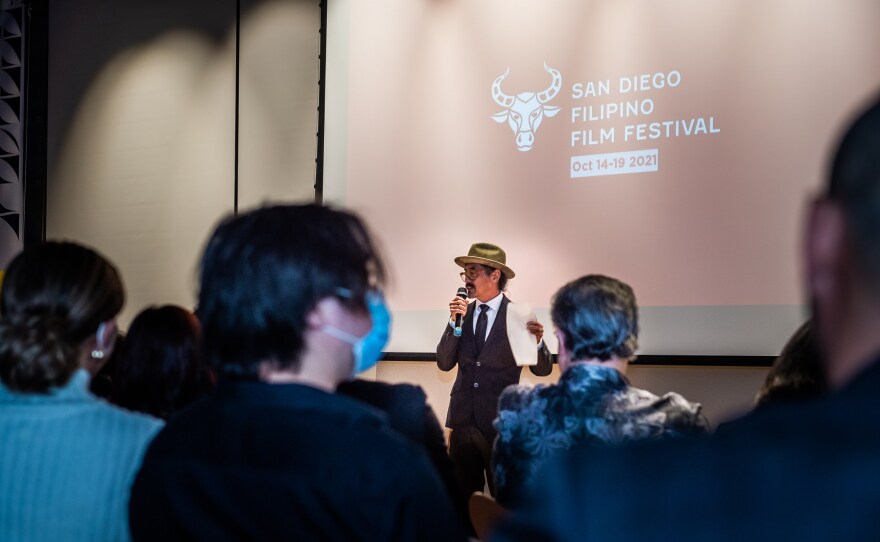
Since its inaugural year in 2021, SDFFF has kicked off each festival with an event called Magic Hour Fest, a tasty prelude to the festival where attendees will get a first glimpse of the official film lineup and get to eat food from White Rice Bodega. This year, Magic Hour is Sept. 13 at the Centro Cultural de la Raza in Balboa Park, and will have music, food, dancing, and the debut of the festival trailer.
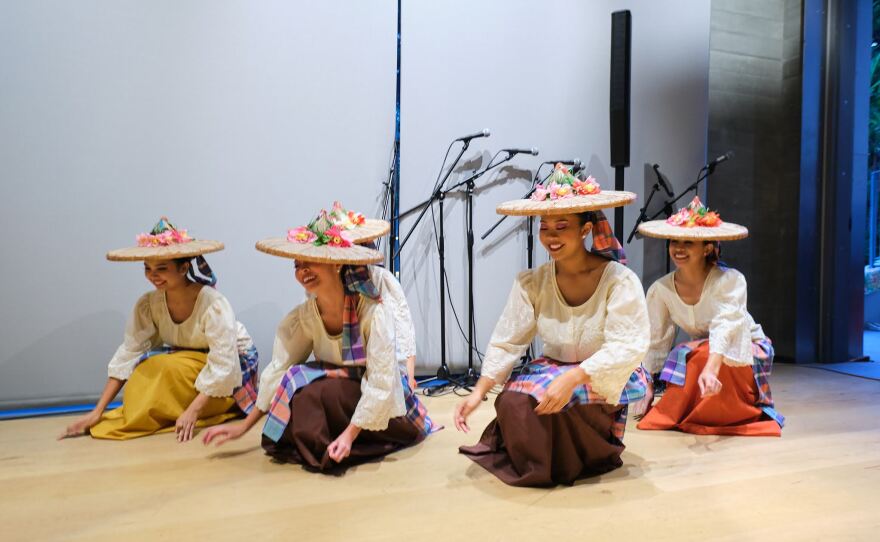
“Our mission is to discover and exhibit compelling films from the global Filipino filmmakers to the diverse community in San Diego,” Bautista said. “Because we are Filipino filmmakers, half of our experience and our culture is hospitality. That's what we do. We welcome strangers into our house,” Bautista said.
Now that house is a cinema showcasing films from around the globe and across the U.S. that highlight the vast variety of the Filipino experience.
“We are pretty much a platform for global films coming from Filipino directors, writers and producers,” Bautista said. “If you come to SDFFF, you will find filmmakers coming from anywhere in the world, and especially from the different regions in the Philippines. Filmmakers will probably tell a narrative film or a documentary that will involve their language and dialect, and also an expression of the landscape where they're at, and also maybe talk a little bit about the food.”

Just as the films reveal a global diversity, Esteban points to how food reflects a similar variety, even within the Filipino community. Take a staple of Filipino food like adobo for example.
“A lot of people think even of adobo as just chicken adobo and or pork,” Estaban said. “But technically, there's 152 ways to make adobo. But everyone thinks it’s just the classic soy with vinegar, sometimes coconut milk, which we do. But there are just so many different areas and so many different regions that make them in so many different styles.”
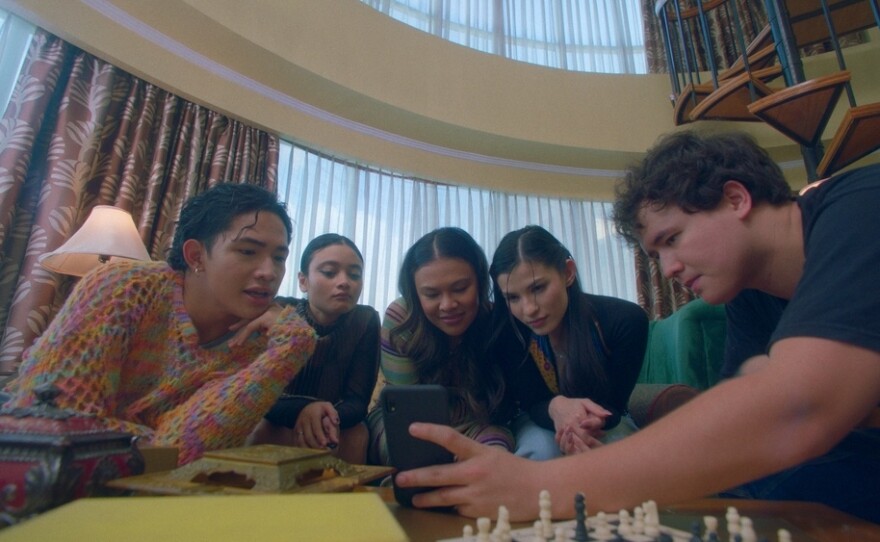
With the added spice of having so many unique flavors to choose from, just like with the cinematic offerings.
And speaking of films, the festival opens with "When This Is All Over" by Kevin Mikhail Mayuga, who was born in a movie theater when his mom went into labor watching “Goodfellas.”
Bautista described the film: “It's about a group of younger generation in the Philippines all cooped up in a building during COVID, and they wanted to somehow engage in a party. That's all I can say.”

Pictured are: Dante Rivero as Padre Mariano Gomez, Cedrick Juan as Padre José Burgos, and Enchong Dee as Padre Jacinto Zamora. (2023)
The closing night film, “GomBurZa,” is a historical film about three priests who were executed in 1872, falsely accused of sedition and treason. The film chronicles the struggle that began with the secularization movement that led to the advocacy for Filipinoization of the Church. These film are just the bookends to what is once again looking to be a breathtaking showcase of films.
“We don't know what will be the effect or the end result of all the things that we do, but it's beginning to look positive and so we will continue doing it," Bautista said. “It's like putting your head against the wind. We'll keep doing it. We're part of a creative movement, and Chef Phil is part of the creative movement. I think what Chef Phil is doing and what we're doing, we contribute to the vibrancy of San Diego, making this an engaging community, a diverse community, and we're culturally represented in a positive way.”
As the interview wraps, Esteban held out the last piece of crispy pork and offered it to me.
“This is a very classic Filipino thing. We never take the last one,” Esteban said.
Then Bautista adds, “It’s the shame piece.”
Since I had been salivating over that piece of pork belly, I took full advantage of being the nonFilipino guest to accept the "shame piece" and savor Chef Phil’s art once again. My appetite was now properly whetted for what he and the San Diego Filipino Film Festival will be serving up this fall to nourish both body and soul.

